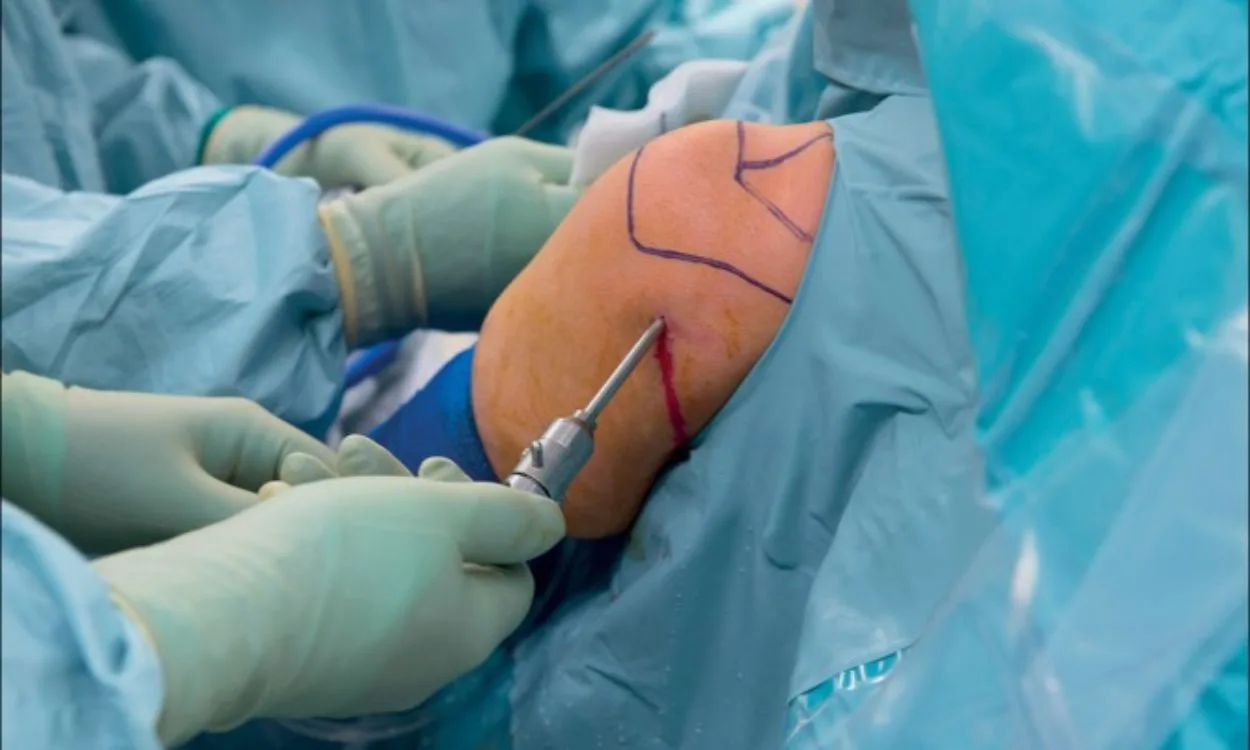What are the Potential Complications of Shoulder Surgery?
Shoulder surgery is a complex procedure that can help alleviate pain and improve the function of the shoulder joint. While it is generally considered safe and effective, like any surgical procedure, it carries some risks and potential complications. It is essential to be aware of these complications before undergoing shoulder surgery.
Here are some potential complications that can occur:
- Infection: One of the most common complications of any surgery is an infection. After shoulder surgery, there is a risk of developing an infection at the surgical site. Symptoms of infection include increased pain, swelling, redness, warmth, and fever. It is crucial to seek medical attention if any signs of infection occur.
- Blood clots: Shoulder surgery, like other surgeries, increases the risk of developing blood clots in the veins. These blood clots can be dangerous if they travel to the lungs (pulmonary embolism) or other parts of the body. To prevent blood clots, doctors may recommend medications or specific exercises to promote blood circulation.
- Nerve injury: The nerves surrounding the shoulder joint can be damaged during surgery, resulting in numbness, weakness, or pain in the arm, hand, or fingers. While nerve injuries are rare, they can occur, especially if the surgery involves complex procedures or the presence of pre-existing nerve conditions.
- Stiffness and limited range of motion: Following shoulder surgery, some individuals may experience stiffness and limited range of motion in the shoulder joint. This can occur due to scar tissue formation or inadequate rehabilitation. Physical therapy and exercises prescribed by the surgeon can help improve shoulder mobility.
- Instability and dislocation: Shoulder surgery may involve repairing or reconstructing damaged ligaments or tendons. However, in some cases, the shoulder joint may become unstable or prone to dislocation. This can happen if the repaired structures do not heal properly or if the shoulder is subjected to excessive stress or trauma.
- Chronic pain: While shoulder surgery aims to alleviate pain, some individuals may experience persistent or chronic pain even after the procedure. This can occur due to various factors, such as nerve damage, incomplete healing, or the development of additional shoulder problems.
- Adverse reaction to anesthesia: Anesthesia is used during shoulder surgery to ensure the patient’s comfort and safety. However, some individuals may experience adverse reactions, such as allergies or complications related to the administration of anesthesia. The anesthesiologist will assess the patient’s medical history and overall health to minimize the risks associated with anesthesia.
It is essential to note that not all individuals who undergo shoulder surgery will experience these complications. The occurrence of complications depends on various factors, including the patient’s overall health, the type of surgical procedure performed, and the surgeon’s expertise.
If you are considering shoulder surgery, it is crucial to have a thorough discussion with your surgeon about the potential risks and complications associated with the procedure. Additionally, following the post-operative instructions and engaging in proper rehabilitation and physical therapy can help minimize the likelihood of complications and promote a successful recovery.
Now that you have a better understanding of potential complications associated with shoulder surgery, let’s explore how the Fitpaa app can support your recovery and overall well-being.
Introducing Fitpaa: Your Personal Health & Fitness Solution
At Fitpaa, we understand the importance of holistic health and well-being, including post-surgery recovery. Our AI-driven Metabolism monitoring and management technology can help individuals achieve their health and fitness goals, even after undergoing shoulder surgery.
With the Fitpaa app, you can:
- Assess your current metabolism: Our Metabolism Assessment tool considers every aspect of your life to identify the root cause of your health condition, including post-surgery recovery. Optimizing your metabolism is crucial for achieving your health and fitness goals with a 100 percent guarantee.
- Personalized Fitpaa Capsule: Based on your metabolism, health and fitness goals, current lifestyle, and eating habits, our team of fitness coaches, nutritionists, and doctors will prepare your personalized Fitpaa Capsule. This all-in-one health and fitness plan incorporates medical therapy, exercise therapy, nutrition therapy, and cognitive behavior therapy to optimize your metabolism and support your recovery.
- Real-time guidance and support: The Fitpaa app provides real-time guidance and incorporates the concepts of habit building and cognitive behavioral therapy to keep you motivated and inspired throughout your recovery journey. You’ll have access to a virtual workout trainer, diet tracker, performance tracker, and progress tracker, making it easy to follow your personalized Fitpaa Capsule.
- Expert consultations and reviews: Our team of fitness planners, nutritionists, fitness trainers, and doctors will regularly review your progress and make necessary adjustments to your Fitpaa Capsule. You’ll receive unlimited consultations, daily follow-up, and weekly reviews to ensure you stay on track towards achieving your health and fitness goals.
With Fitpaa, you can experience the joy of getting fit and excelling at life, even after shoulder surgery. Our goal-oriented services come with a lifetime validity, ensuring you achieve your goals with a 100 percent guarantee.
Don’t let the fear of complications hold you back from achieving optimal health and well-being. Download the Fitpaa app now and start your journey towards a healthier, fitter, and happier you!









